"I tried acne wonder drug Roaccutane—here's what it's actually like"
You may have heard of the infamous treatment, but what is taking it actually like? Five women share their experiences with Roaccutane
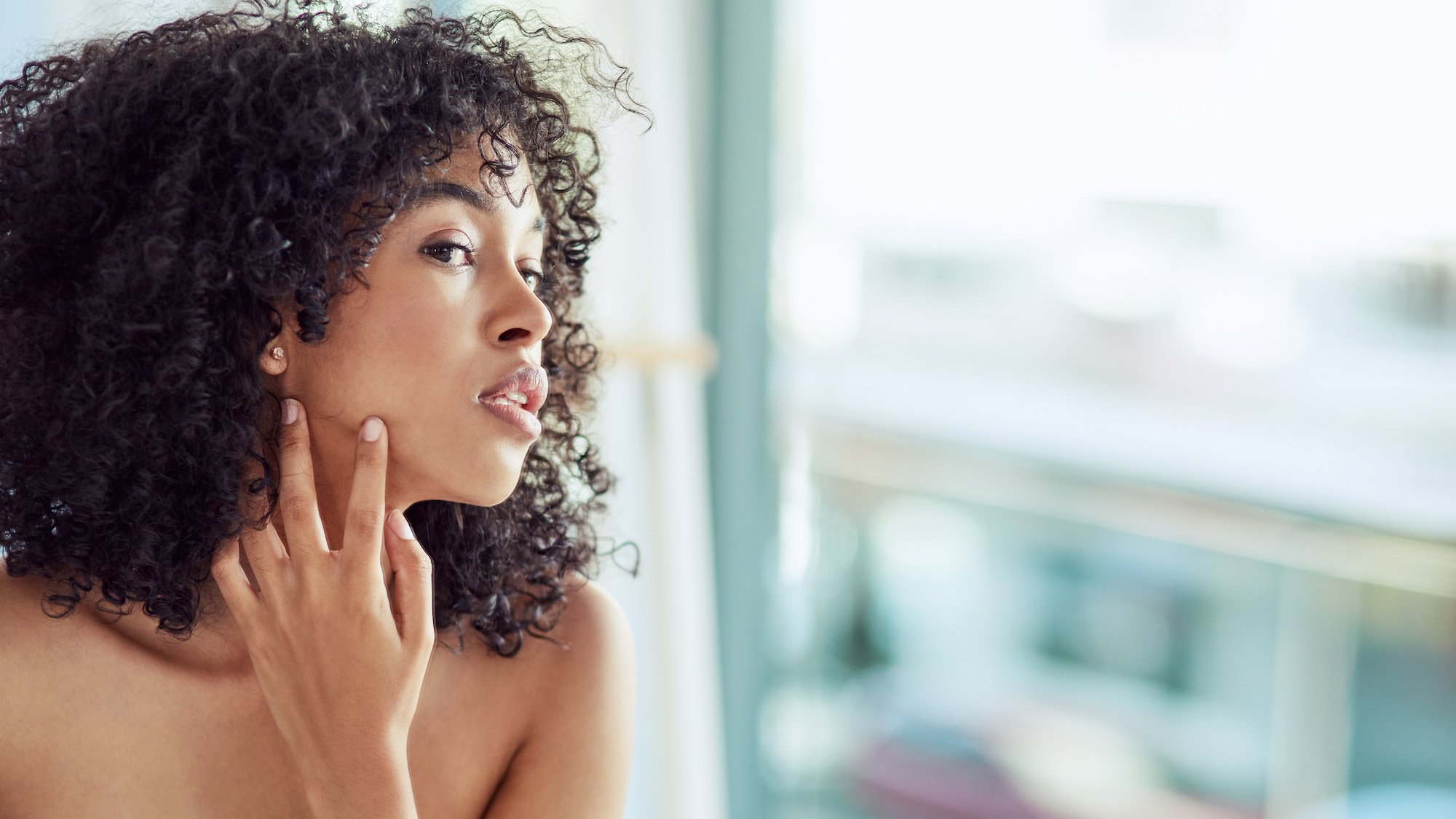
You've likely heard of Roaccutane, the "wonder drug" that promises to potentially "cure" acne for the estimated 30,000 individuals a year that take it in the UK.
Despite its reputation as one of the best acne treatments, it's not without controversy. In 2020, it was in the press when two mothers shared their heartbreak after their teenage daughters lost their battle with depression. Both were taking the drug at the time, and both mothers, in part, blame Roaccutane. Telling Good Health their stories, they said: "We can't get our daughters back, but we can warn others about this drug."
Known for the possible debilitating physical and mental side effects, the treatment was linked to the deaths by suicide of ten people in 2019 alone, according to data from the Medicines and Healthcare Products Agency (MHRA) cited by The Guardian. As a result, the medicine regulator reopened an inquiry into the drug.
While a skincare routine for acne is a must and acne patches can be useful, for those suffering, Roaccutane is often seen as a shortcut to clearing up severe breakouts despite its side effects. For a more in-depth guide, we spoke to a medical expert for their take – plus asked people who have taken it to share their Roaccutane review for some first person insight into what taking it is like.
What is Roaccutane?
According to aesthetic and dermatology nurse Emma Coleman: "Roaccutane is otherwise known as oral Isotretinoin and is classed as a retinols drug. It was first approved as a treatment for severe acne by the US Food and Drug Administration (FDA) in 1982."
It comes in tablet form, rather than as, say, a Roaccutane cream, and is also sold under the brand names Rizuderm and Reticutan in the UK, according to the NHS.
What does Roaccutane promise to do?
Roaccutane is an acne treatment drug but, due to its success rate, is widely thought of as the acne-curing drug—despite the fact that, as with any treatment, success varies from person to person.
Marie Claire Newsletter
Celebrity news, beauty, fashion advice, and fascinating features, delivered straight to your inbox!
The drug isn't the easiest to get prescribed; Emma shares that "there are very strong guidelines and limitations surrounding the prescription process." If a person approaches their doctor about their acne for the first time, is below the age of 12 years old, or doesn't have severe enough acne, they won't get a referral.
If you do have teenage or adult acne (i.e. you're over the age of 12), you are eligible. However, you cannot take Roaccutane if you are pregnant (or think you may become pregnant) or breastfeeding, or have certain other medical conditions.
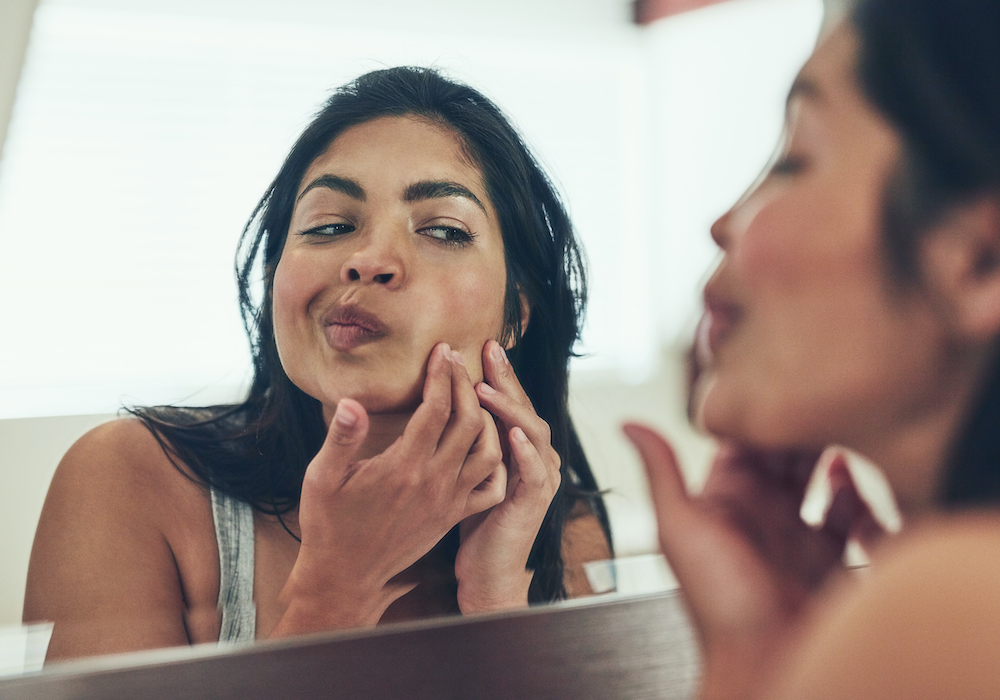
What are the side effects of taking Roaccutane?
Women who have started their period are required to take a pregnancy test every month while taking Roaccutane, as one of the most serious potential side effects of the drug is teratogenicity—or stunted physical growth and development for unborn babies, Emma tells us.
"There's evidence that 50% of pregnancies spontaneously abort during Roaccutane therapy, and of the remainder, about half of the infants are born with cardiovascular or skeletal deformities," she adds.
Serious, rarer side effects listed here affect fewer than 1 in 1,000 people and include (but are not limited to): becoming anxious, aggressive, or violent; bloody diarrhoea; yellowing of the skin or whites of the eyes; or sudden changes to your eyesight, including not seeing well at night, for example.
The NHS says that a doctor or 111 should be called if any of these serious side effects are experienced. More common side effects, affecting more than 1 in 100 people, include the following.
- Dry skin, eyes, nose, or lips
- Skin issues such as rashes and mild itching
- Sore or dry mouth or throat
- Headaches
- Back pain
- Aches and pains of the muscles or joints
But are the potential negative mental side effects underplayed? Marie Claire spoke to four women to get their Roaccutane review—as well as one woman who refused the drug outright because of the risks.
Ages and details were correct when this article was first published in 2020
"Roaccutane wasn't right for me; I'll live with the side effects for the rest of my life"
Kerri, 28, Architectural Technologist
"I reluctantly went on Roaccutane in 2016 after trying an assortment of treatments. After six years of trying various methods—the pill and creams, to name a few—dermatologists told me that I had to go on Roaccutane because nothing else would work. At first, I refused as I was aware of the side effects, but I wanted help.
"I knew there was a chance I could get a combination of physical, emotional, and mental side effects. I didn't think clear skin was worth that, but the skin professionals made me feel like it was my last resort. My skin was awful and my self-esteem was worse, so thought I had nothing to lose.
"After taking Roaccutane for six months, luckily I didn't experience any serious mental side effects, but there were plenty of debilitating physical ones. They started during my second month of treatment. My skin became terribly dry – it physically hurt to make expressions and eat at times. It was cracked and flaky and you could see it peeling off my face throughout the day.
"I also experienced nosebleeds, a few every week for a couple of months. I had to leave lectures on a regular basis, which was embarrassing and made me even more self-conscious. My eyes were also unbearably dry and I had to use eye drops throughout the day.
"While on Roaccutane, you become more susceptible to sunburn and sun damage. I went on holiday during the last month of treatment and, even though I was very careful, I developed a large number of moles throughout the following months. I now have to have annual mole checks and am considered at high risk for skin cancer. I can't help but blame the Roaccutane for this.
"Aside from being embarrassed and self-conscious of my nose bleeds and dry skin, I didn't experience mental health issues while taking it. Seeing my skin clearing was a relief and made me happier and more optimistic at the time.
"In hindsight, Roaccutane wasn't right for me as my acne didn't stop when I finished my course of treatment. I've been struggling with acne ever since and I will live with the side effects for the rest of my life (eyes and moles).
"Now that I'm older with more knowledge, I will not give in so easily if they recommend Roaccutane again. I believe there are plenty of tests that can be done to try and identify the problem before trying to fix it with what they believe to be a 'one pill fixes all' treatment."
"I still get spots, but they're more normal now. I'd recommend Roaccutane to a friend"
Vicki, 21, student
"I started Roaccutane aged 17 after years of trying creams, antibiotics, ointments, and pretty much every other acne treatment on the market. My older sister had been on it a few years before, so I always knew it would be an option for me if all else failed.
"My dermatologist made me very aware of all of the side effects. They are extensive, so it’s important that people know what they’re signing up for ahead of time. Given that I had seen my sister go through the process, I felt very aware of what was to come. For me, I thought it would be worth it if it would clear up my acne.
"I was on Roaccutane for four months. I experienced extremely dry skin for pretty much the entire process. My face and lips were the worst, but my whole body was also much drier than usual. This was by far my worst side effect as it was very uncomfortable on a daily basis. I was able to manage it using moisturiser, however. In addition to this, I did experience body aches throughout which I found prevented me from exercising as normal. Finally, I had nosebleeds very regularly which they warn is a potential side effect.
"A major warning is the increased risk of serious sunburn. This should not be taken lightly. I spent a day doing community service gardening in the sun whilst on Roaccutane. I left having burnt my face. This sunburn developed into a full blistered area on my chin which ultimately led to scabbing which lasted for about 3 weeks. I found this very difficult.
"Although I experienced negative physical side effects, I didn't experience any form of depression while on the medication. However, I did find it very mentally taxing to have such dry and uncomfortable skin. For me, my acne got worse before it got better, which I found did affect my mood. It is a tough process to go through in the sense that you can’t really cover your acne during it. Before Roaccutane, I was very self-conscious of my skin but could cover it with foundation. The dryness of my skin meant that wearing makeup was much harder than before. I found this mentally tough as, for a while, my skin looked worse than ever and I couldn’t cover it. Especially when I sunburnt my skin, I felt down.
"I do still get spots but now it’s more normal, as opposed to before when I had acne breakouts all over my face. I would recommend Roaccutane to a friend. However, I'd make it clear that it’s very taxing and warn them not to go into it lightly. You have to persevere and keep the end result in mind."
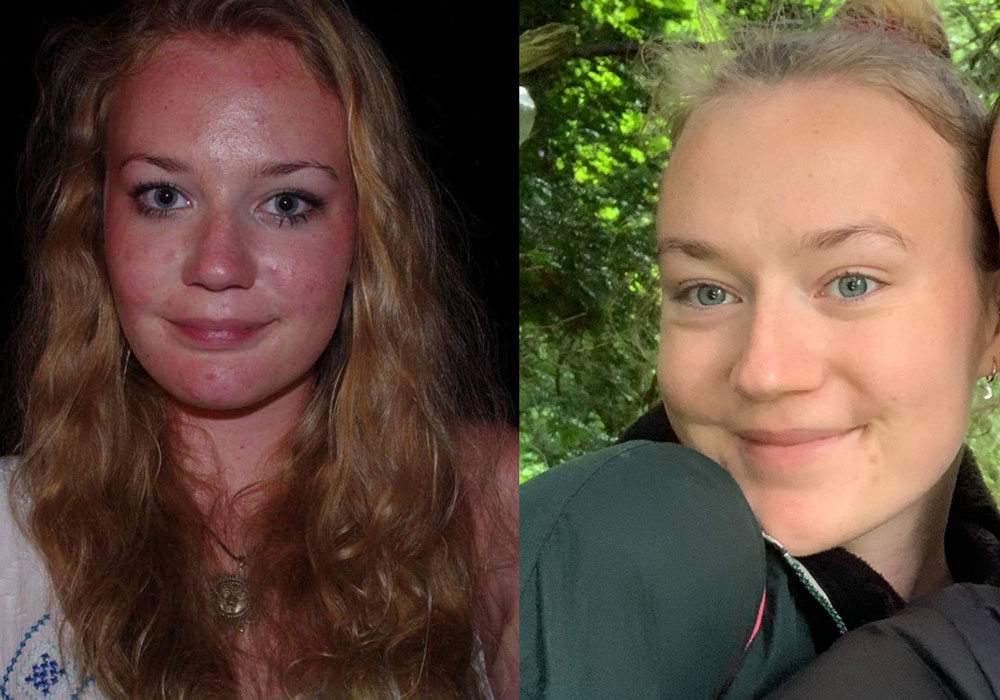
"I struggled with depression pre-Roaccutane; my side effects were worth the end result"
Orla, 24, student
"I had clear skin up until I was 18, then I started to get typical teenage acne – if there is such a thing! I was prescribed various treatments over the years, including tetracycline, erythromycin, and doxycycline, to little or no effect.
"I was first on Roaccutane for seven months between 2015 and 2016. I thought I knew what side effects to expect, but some did take me by surprise. I suffered from dry skin predominantly on my ears and nose, which added to the negative impact that the drug had on my mental health as I was very self-conscious about it. It was impossible to cover the dry patches, and makeup only drew more attention.
"The strict rule regarding contraception and avoiding pregnancy made me more conscious than usual of the need to use protection during sex. I have never had issues with drawing blood, so the only negative aspect of the monthly blood workups was that I couldn’t do any strenuous activity beforehand. I only became aware of this when my liver function tests came back elevated, which was unusual, but my dermatologist speculated this could be due to my gym session and hockey training on the day of my blood test.
"My second course of Roaccutane lasted 10 months, starting in the summer of 2019. During both courses, one of the worst side effects was that my lips would crack and bleed due to being so dry. This was particularly the case immediately upon waking up in the morning. I found that La Roche Posay Cicaplast Baume Lèvres, £7.50 at Lookfantastic, works wonders, and I always had a tube on my person during the second round. To minimise overnight dryness I applied a thick layer of Epaderm, which really improved the state of my lips in the morning. I also used this on my nose and ears overnight.
"I was already struggling with recurrent depression and anxiety when I started Roaccutane, and so I was careful to keep track of my mental state during the course. My GP increased my dose of Sertraline following a medication review to account for the effect Roaccutane had on my existing condition.
"I would recommend Roaccutane to a friend, as I truly believe the side effects to be worth the end result. But anyone contemplating the drug should be sure to thoroughly research it first and have plenty of the best moisturiser ready to go."
"It's not as bad as I thought it would be, but a lower dose has helped"
Lily, 21, student
"I began my treatment on 1st June 2020. I had been referred to the dermatologist by my doctor back in December, so it took a long time to actually start the treatment on the NHS (I was going to go private, but got the letter through the post just as I started looking into private options).
"My acne has been off and on for about five years. I would say I started noticing it at the start of sixth form, maybe. I used acnecide (I think) from over the counter and prescribed creams from the doctors, which sort of kept it at bay but never really got rid of it. I have also been on two rounds of lymecycline antibiotics, which, in my opinion, did nothing. It was only until my third year of university that my skin got really bad, which I just assumed was alcohol and the uni lifestyle. I then went on the pill (Gedarel) to sort it out but had to come off it as it really affected my mood, so went back to the doctor, who then referred me to the dermatologist.
"I think I was a bit skeptical going on Roaccutane, as many people around me at school and growing up had been on it and had warned me of the side effects, such as dry skin and potential mental health issues. But I did go through all of these with the doctor before deciding to go through with the treatment.
"I am currently on my third month out of seven of the treatment. The most severe side effects have been dry, cracked lips and general skin dryness. I am also suffering from joint and muscle pain. I wasn’t really aware of this side effect coming into the treatment. I was really enjoying running during lockdown, but I’ve had to reduce high-impact exercise as the drug dries out my joints and I find running quite painful now – which is actually very annoying. My periods are much more painful than normal, which I also wasn’t particularly aware of before starting.
"When deciding whether the treatment was right for me, I was slightly concerned about the risk of mental health problems, due to past history of low mood and depression. My doctor decided to put me on a lower dose of 40mg a day over seven months, rather than a higher dose over a shorter period of time. I think this is working for me, as I don’t feel the treatment has affected my mood or noticed any other mental health issues.
"Apart from the constant need to apply lip balm and sore legs when I wake in the morning, it is actually not as bad as I thought it would be. The side effects listed with the treatment seem to be never-ending but, thankfully, I've only suffered from a few. I think the timing that I started my treatment was ideal, as being at home and away from uni has enabled me to track how I actually feel, without the stresses of work and deadlines. I also think it’s been easier as I’m not going out and drinking as much, – something I would be doing at uni – which is encouraged as the drug can damage your liver.
"Over the last week, I have finally started to see my skin clearing up. I think because I’m on a lower dose it's taken longer to notice a difference, but I’m looking forward to hopefully having clear skin in the future."
"It seemed like a big leap for the Plan B treatment option"
Alexandra, 25, PR Exec
"I have suffered with mild acne since my teenage years, however, around 10 months ago it got much worse and quite painful. I went to the doctor for advice on treatment and was prescribed Acnecide 5% (benzoyl peroxide). I was further told that if this didn’t work in a month or two, they could put me on Roaccutane.
"This seemed like a big leap for the Plan B treatment option. When I said, in no uncertain terms, that I didn’t want to go on it, they accepted this. Instead, the doctor said that they’d focus on the first course of treatment. Thankfully, I responded well to Acnecide and have stuck with that.
"I don’t clearly remember being made aware of any potential side effects. I was told that I would be monitored if I was put on it, but nothing about the side effects. I believe I asked about them (I had an inclination to what they could be, but wanted to hear the medical point of view). I was told that people respond to it in different ways and that it would be monitored.
"Doctors weren't clear about how serious these side effects can be, which surprised me. I knew it must be clear from my medical records that I had a history of depression and anxiety. I've been on medication for it for a while and still am. I just found considering Roaccutane pretty surprising. It made me question whether I was being too over-cautious, but I didn’t want to risk anything that could hinder my mental wellbeing.
"I can’t pinpoint specifically where my knowledge [about Roaccutane] came from. I think being at an all-girls school and having older girlfriends meant I knew that it could have damaging side effects. I was especially apprehensive about mood swings, or it making you feel depressed or anxious.
"As I have always been quite cautious of anything that may affect my wellbeing, it always stuck in the back of my mind. As I read more, I noticed the narrative that, although not fully researched, Roaccutane could have quite strong side effects. I coupled the two together and decided it just wasn’t worth the risk."

Ally Head is Marie Claire UK's Senior Health and Sustainability Editor, nine-time marathoner, and Boston Qualifying runner. Day-to-day, she heads up all strategy for her pillars, working across commissioning, features, and e-commerce, reporting on the latest health updates, writing the must-read wellness content, and rounding up the genuinely sustainable and squat-proof gym leggings worth *adding to basket*. She also spearheads the brand's annual Women in Sport covers, interviewing and shooting the likes of Mary Earps, Millie Bright, Daryll Neita, and Lavaia Nielsen. She's won a BSME for her sustainability work, regularly hosts panels and presents for events like the Sustainability Awards, and is a stickler for a strong stat, too, seeing over nine million total impressions on the January 2023 Wellness Issue she oversaw. Follow Ally on Instagram for more or get in touch.
-
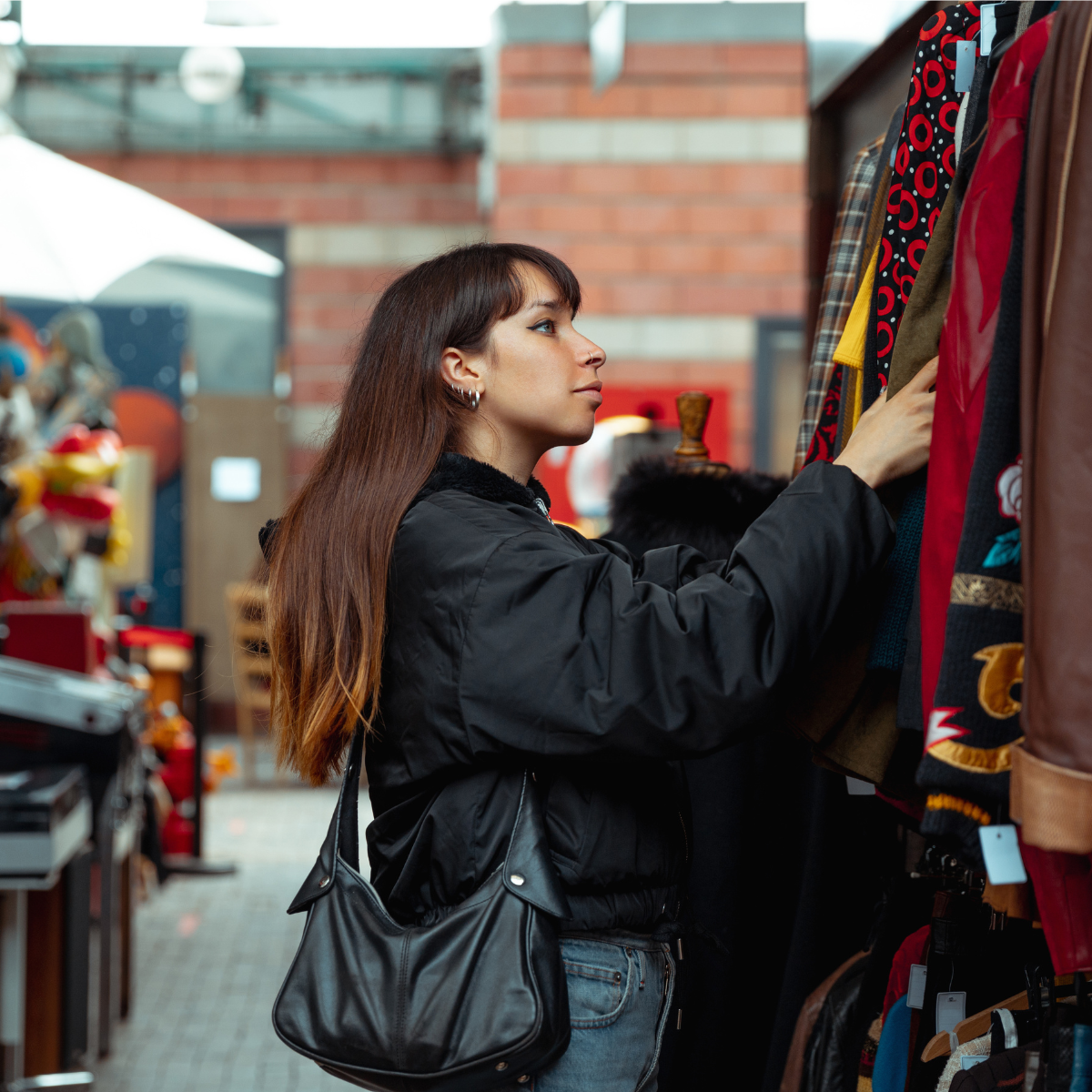 Vintage sales, flower festivals and unique brunches - 7 fun and frivolous things to do this bank holiday
Vintage sales, flower festivals and unique brunches - 7 fun and frivolous things to do this bank holidayBy Jadie Troy-Pryde
-
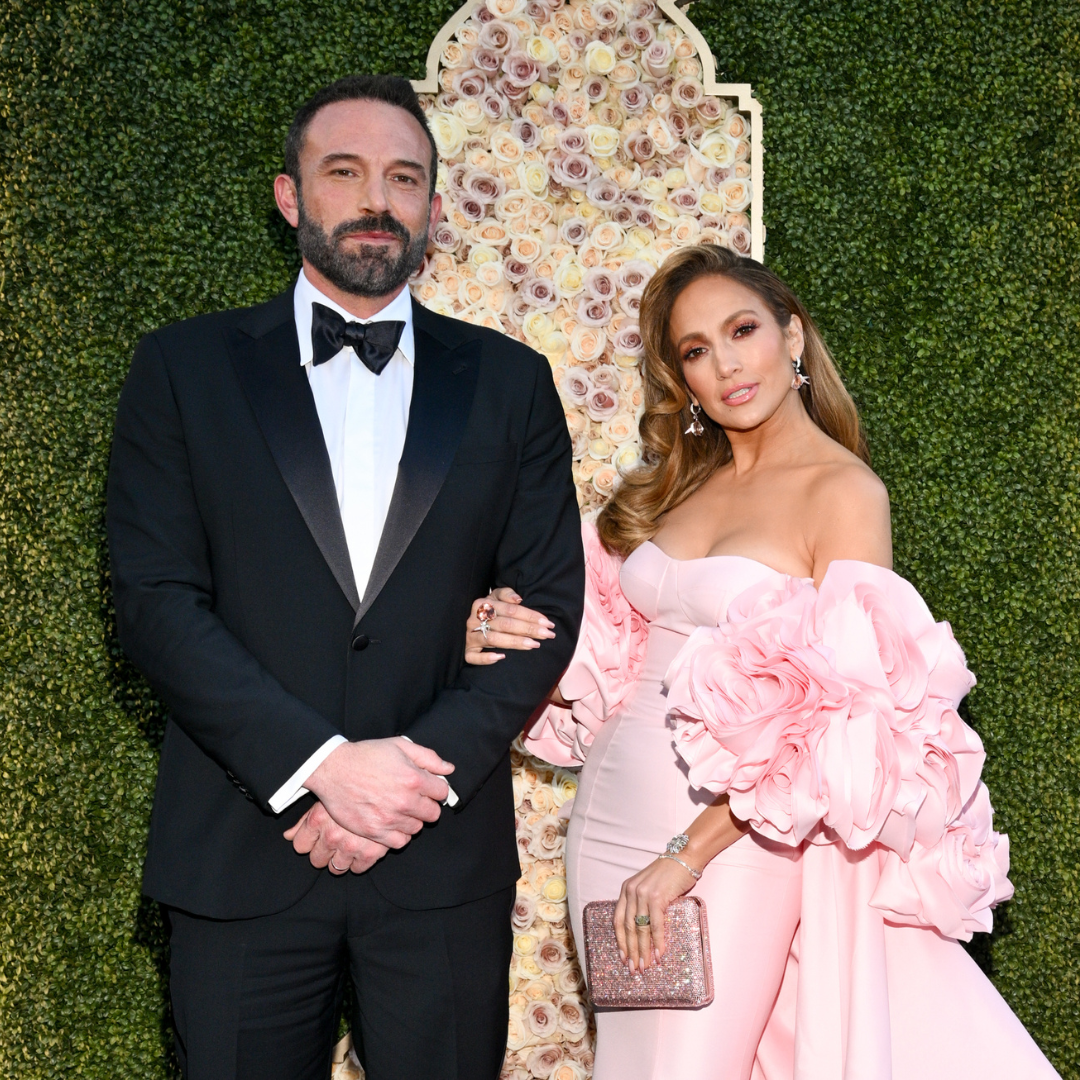 How Ben Affleck feels about dating after his divorce from Jennifer Lopez
How Ben Affleck feels about dating after his divorce from Jennifer LopezHe's taking it slow
By Iris Goldsztajn
-
 Dior travels to Kyoto for a cherry blossom-inspired fashion show
Dior travels to Kyoto for a cherry blossom-inspired fashion showHere's everything you need to know
By Clementina Jackson